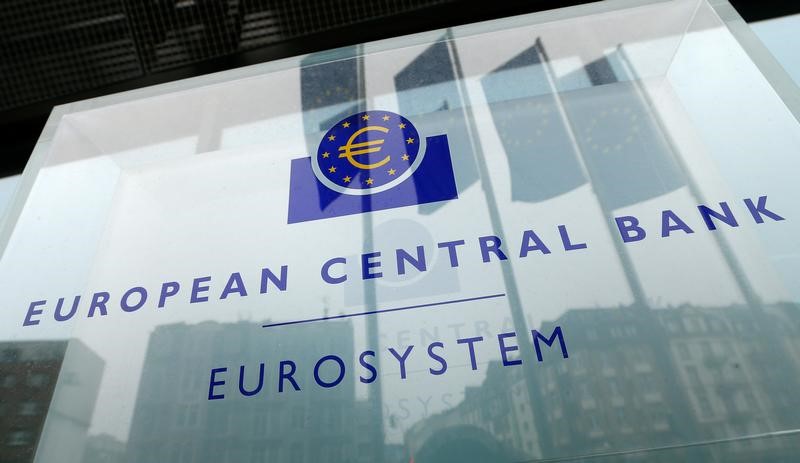By Francesco Canepa
FRANKFURT (Reuters) - The European Central Bank's bonds-for-cash scheme, through which government debt bought as part of the ECB's 2.3 trillion euros (£1.95 trillion) stimulus programme is lent out against cash, has yet to reach even half its maximum size, ECB data showed on Monday.
The data illustrates the scheme's limitations in alleviating a scarcity of high-rated government bonds such as Germany's, used by investors as collateral to guarantee their trading positions and borrow cash via repurchase agreements, or repos.
The ECB and the euro zone's national central banks received cash worth 18.1 billion euros on the average April day in return for bonds lent out under the scheme, the data showed.
While this amount has trebled since December, when the programme was launched, it is broadly unchanged compared to March and remains far below the programme's 50 billion euro maximum capacity.
This total allowance is divided up between the ECB and the seven national central banks that take part in the bonds-for-cash programme based on how much government debt they own.
This means the amount of coveted German debt actually offered under the scheme is well below 50 billion euros.
Repo is a 3 trillion euros market in Europe and has become a key source of short-term funding for banks and other financial firms since the financial crisis.
But aggressive ECB purchases of government bonds, the most used collateral for repo, and stricter EU rules on trading and banking have curtailed the supply of that paper at key junctures, such as the end of quarters and years.
Failure to come up with collateral when asked can lead to a firm being put into default, with potentially destabilising consequences for the financial system as a whole.
Industry body the International Capital Market Association said constraints on that market should be eased and the ECB should step up its own lending by taking it away from national central banks and centralising it.
This would allow dealers that do not have access to Germany's Bundesbank to borrow the country's bonds from the ECB.
But ECB President Mario Draghi said last month bond-lending would continue to be carried out by national central banks, confirming an earlier report by Reuters.

His deputy Vitor Constancio even called for a tightening of repo rules globally to cap banks' ability to generate credit by pledging the same assets as collateral multiple times.